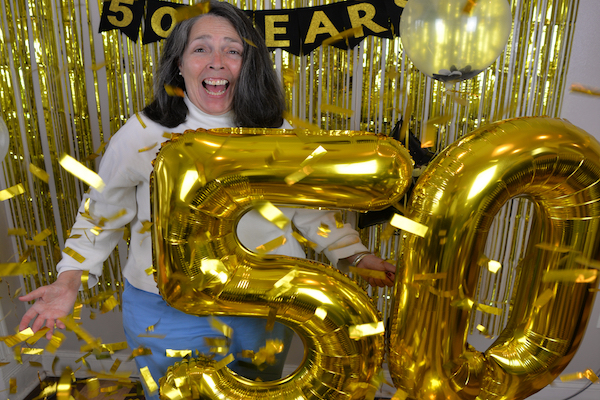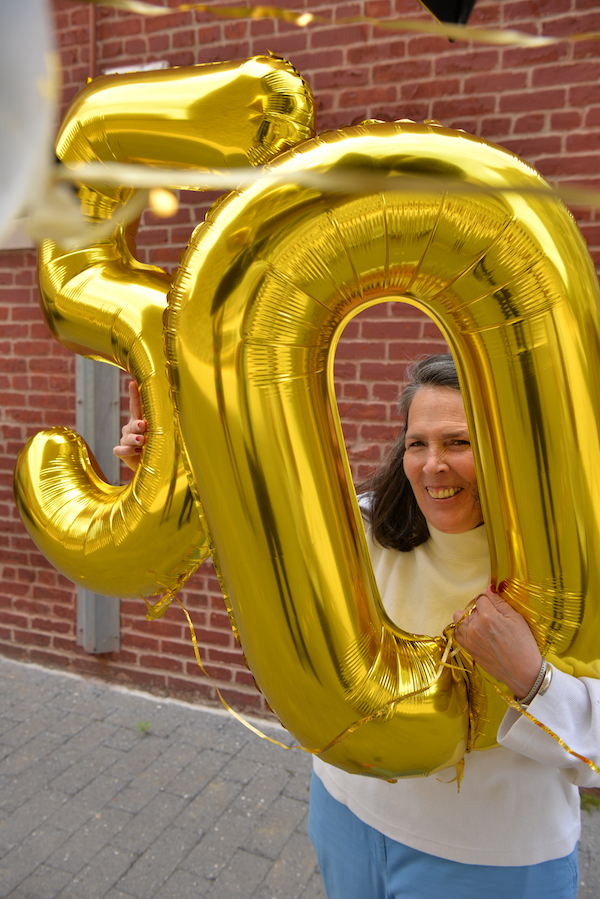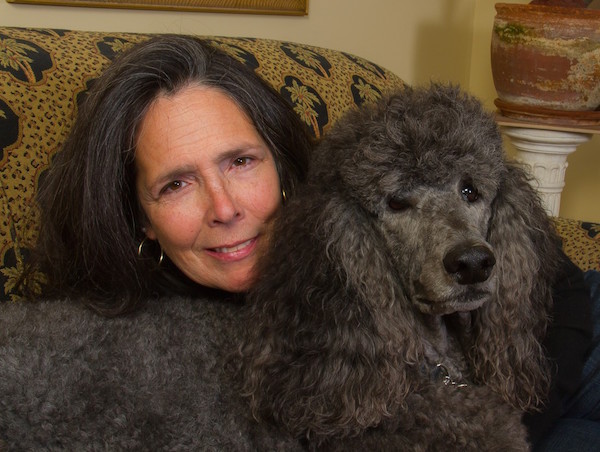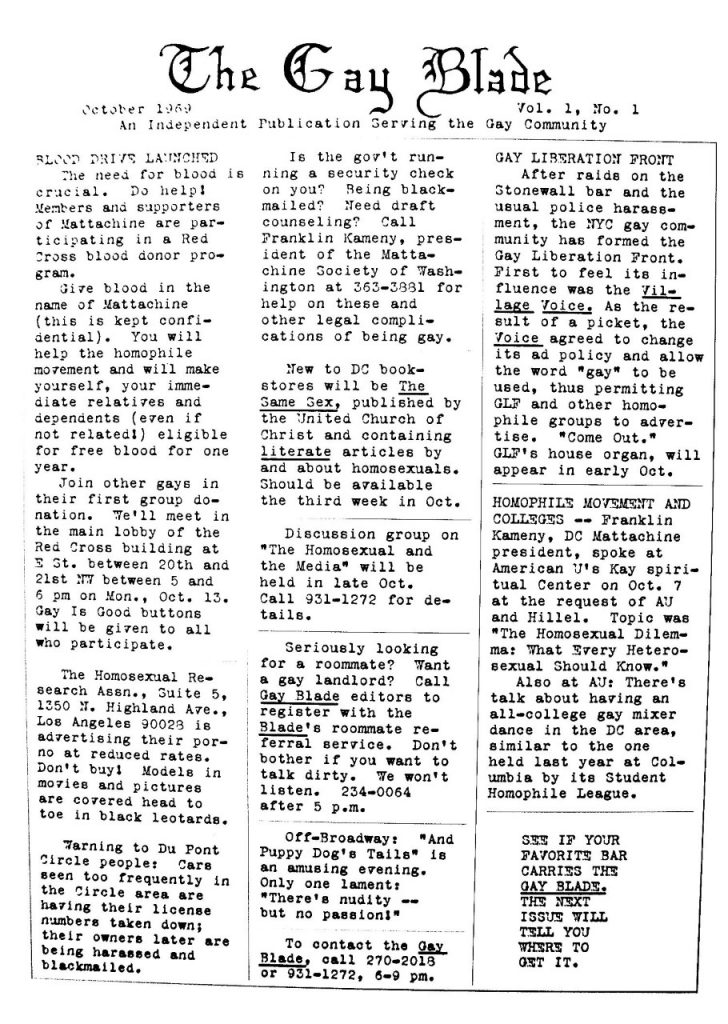
Proud 2b Rebels: LGBTQ Apparel Brand Celebrates The True Heroes of Stonewall—Black Trans and GNC Womxn
July 17, 2019
Arty Queers: The Woman Behind D.C.’s LGBTQ Art Market
July 20, 2019An interview with Washington Blade Publisher Lynne Brown
2019 marks the 50th anniversary of two major developments in queer history. In June 1969, patrons of New York City’s Stonewall Inn initiated the riots credited with birthing the modern day LGBTQ liberation movement. Four months later, in October, members of Washington D.C.’s gay community founded Washington Blade. It has since become the nation’s oldest LGBTQ newspaper. Despite financial and technological threats, Washington Blade has continuously provided critical information to our community via accurate, professional journalism. For thirty years, Lynne Brown has been a part of the paper’s success.
For the last twelve years, Brown has held the title of Publisher at Washington Blade, but when she first came to the paper in the ‘80s, she was a sales representative for print advertising. “That was fun! I got to know my community, I got to help people build their business, and there was a personal freedom that made the job a perfect fit,” she explains. Advertisements printed in the paper not only allowed businesses to connect with D.C.’s LGBTQ contingent, but they also informed readers of which business owners they could trust and who wanted to work with them. Says Brown, “Washington Blade was unchallenged by the internet or anything else really. The way to reach the gay community was The Blade.”
Brown didn’t originally plan to work in media. She holds a degree in geography from Syracuse University and, after moving to D.C. with a girlfriend, intended to work for the government. “On the way into the civil service exam, I tripped and fell on the stairs. I sat there thinking to myself, ‘I’m really not destined for a desk job’,” she recounts.
Brown revised her plan and started looking for something that would allow her the freedom to work outside of a cubicle. By chance, her best friend was playing tennis with Washington Blade’s sales manager. They were looking to hire someone, Brown had a bit of sales experience, and so began Brown’s tenure at the paper.
Over the years, Brown has worked to keep Washington Blade’s reputation as “the newspaper of record for the LGBT community” intact. In November of 2009, the corporate venture capital company that owned Washington Blade closed and the paper filed for bankruptcy. The paper continued to run: Brown and twelve others came together to devise a new system. “We didn’t miss a week, but we had to publish under a new name: The DC Agenda,” she says proudly.
Satisfied that the current state of the paper was cared for, she set her sites on saving the Washington Blade’s past. “It’s kind of an unknown story, but several guys helped me move the archives out of our shuttered office space and into private storage,” Brown shares. At the time, any online archives were on servers sequestered by the bankruptcy, meaning the accessible archives existed only in paper format. She couldn’t bear the thought of some landlord throwing that history away or a party opposed to gay rights destroying the archive. “They literally could have erased gay history,” she explains.
In April of 2010, Brown Naff Pitts Omnimedia, a new locally owned business created by Brown and various current and former Blade staff members, bought the paper’s assets in Bankruptcy Court. The Washington Blade was back and the paper archives were officially safe. “When we did get them, it was my personal commitment to make sure they would never be vulnerable like that again,” she says.
And so Brown embarked on the task of digitizing the archives. Though she found local LGBTQ businesses to help, the process was slow and expensive. Brown began to search for other options. A number of college libraries approached her about housing the Washington Blade, but Brown worried about accessibility for the community. “It’s a great program and the DCPL staff has been marvelous to work with. Our corporate champion is a lesbian. It’s a trifecta: the Blade is safe, the Blade takes its place in D.C. history, and the Blade is accessible to everyone,” she explains.
In knowing its history, Brown is able to talk to why the paper’s meant so much to the LGBTQ community over the years. She explains, “Having your own stories in your own words is important to every community… every community needs to be together. You need to communicate together. From your affinity groups, then you branch out and build bridges, communities, friends, and institutions.”
Before a time when we could connect on social media or even chat rooms, Washington Blade provided a safe place to come together. Classified advertisements have always been a big part of the paper, though less so since the dawn of Craigslist. Personal classified ads used to take up a large portion of the paper as well. “It was slower, more complicated, and maybe even more romantic than it is today,” she says of the gay dating landscape in the ‘80s.
As these sections have seen less popularity, other aspects of the paper have grown. “In the twenty-first century, we help trans individuals change their names because we are a registered newspaper of record with the District of Columbia court system. A public announcement in the Blade means you can change your name legally and go back to the court to get new identification,” Brown explains.
“We’ve also always provided obituaries for free,” she continues. Most other papers charge $200-$500 to publish an obituary. As a registered newspaper of record with the courts, The Blade can publish obituaries for community members who’ve passed, allowing their estates to be settled. “In a time before gay marriage, a gay man’s heirs or boyfriend could inherit what he left behind,” Brown says.
She brings up a funeral she attended where the priest pointed out the dash between the dates on the headstone. “He said, ‘The little dash represents a whole life’,” Brown remembers. “Newspapers are the dash. Newspapers capture your life. We publish your birth, wedding, and death announcements and cover everything that happens in between. From gay bowling and swim team finals to gay rights, it’s all there in the pages of The Blade,” she explains.
Having seen it through so many changes, what does Brown hope for the Washington Blade fifty years from now? “That it exists,” she says simply, “This paper is a cornerstone of our community.”








